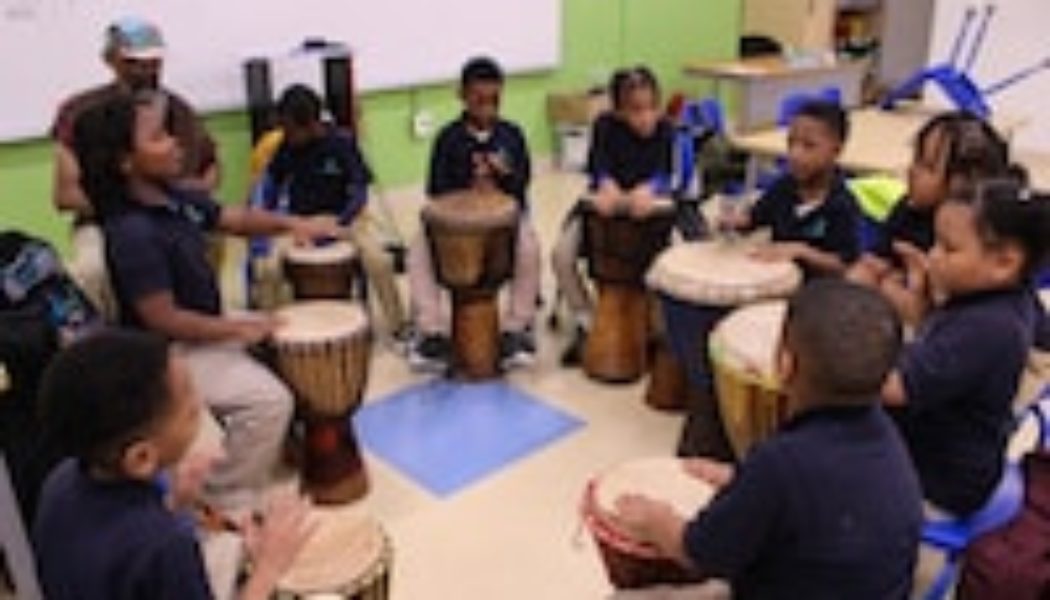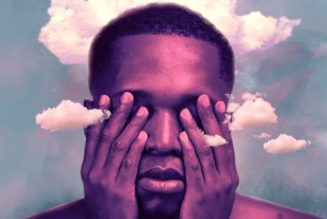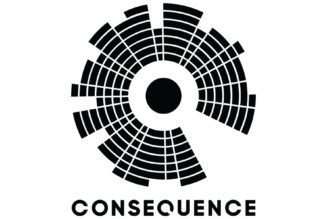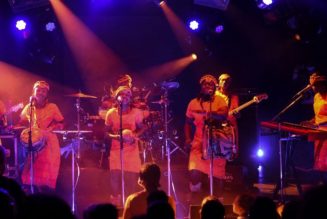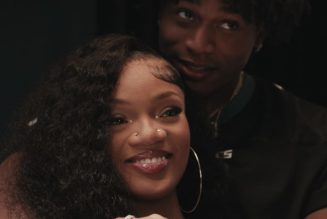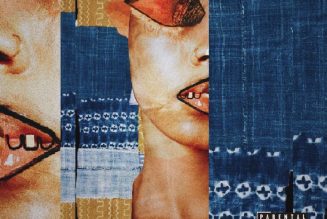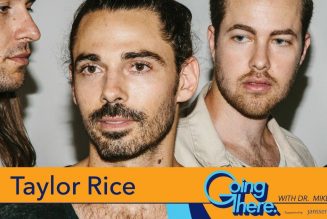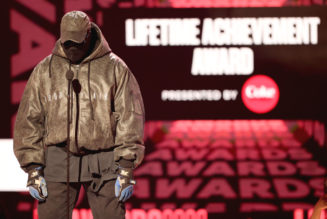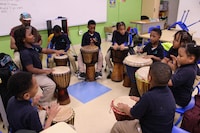
In her cultural workshops for children, Vera Oye’ Yaa-Anna uses traditional West African music, dance and cuisine to promote physical and emotional well-being. Food and music also provide a good front door for teaching history, which she does with the flair of a master storyteller.
During her series of jazz appreciation workshops held at two D.C. elementary schools this month, children learned about Louis Armstrong, “the father of jazz,” and got to play the djembe, a West African hand drum with global percussive influence.
At one of the schools, the series culminated Tuesday with a Mardi Gras parade through classrooms and corridors and around the school grounds.
“We celebrate Mardi Gras because it makes our ancestors happy to see us continuing their culture of music, dance and eating well,” Oye’ Yaa-Anna said.
Her work with children began in 1996, after meeting some homeless children at the Friendship House charity on Capitol Hill.
“I have never understood how, in one of the richest cities in the richest country in the world, you could have kids who can’t even dare to dream,” she said. “I never want kids to feel that they are less than others just because they don’t have what others have.”
One of the ways she lifts the children’s spirits is by making them laugh as they enter the room. She stands at the door, gives them a high-five and starts laughing. It’s contagious. Pretty soon, everybody is laughing.
“I call it laugh yoga,” she said. “It relieves a lot of the adultlike stresses that the kids carry around.”
For the students, her workshops are the only place they get to laugh with classmates, rather than laugh at them.
Storytelling also has therapeutic value. But when she first started asking kids to stand and tell a story, much of what they talked about were violent incidents that they had witnessed or heard about. So she asked them to tell a story about their families, only to find that some children were essentially raising themselves and had little to say about family.
When she asked them to make up a family — to design their ideal family — the visions were remarkably similar. “They wanted a mother and father, sister and brother and a pet to care for,” Oye’ Yaa-Anna said. “They are caregivers at heart, and they love caring for parents, the people who ordinarily would be caring for them.”
“Auntie Oye’,” as the children call her, was born in Liberia, a small West African country founded by free and recently emancipated Black Americans in the early 1800s. The woman who would become her great-grandmother was living in Richmond. And the man who became her great-grandfather lived in Augusta, Ga.
With assistance from the American Colonization Society, both made the 4,700-mile voyage across the Atlantic Ocean and met in Liberia. They married and began a new life together in a part of the country called Maryland County, so named because that’s where most of the Black immigrants from Maryland lived.
But a caste system soon emerged in Liberia, with the freed Americans at the top and the indigenous Africans at the bottom. A coup and a civil war in the 1980s exposed the rifts. By the time Oye’ Yaa-Anna came to the United States, she was aware of the harms done by people with an us-vs.-them mentality, who think “us” is always superior to “them.” And she knew the dividing line could be based on class as well as race.
In D.C., she saw greater economic disparity among Black people than between Blacks and Whites.
In her work, Oye’ Yaa-Anna would help restore the broken cultural connections. It’s been a joy, but it hasn’t been easy.
She tasked saxophonist Herb Scott with finding more musical instruments for her program because she doesn’t have enough for all the kids who want to play.
Scott, who is a graduate of the Duke Ellington School of the Arts in D.C. and head of the Capitol Hill Jazz Foundation, said that getting instruments for students has been a struggle. “It’s not just music, either,” Scott said. “The entire arts program in our schools are under-resourced — at least in those schools where the parents don’t have thousands of dollars to donate.”
Joseph Ngwa, a native of Cameroon, is one of Oye’ Yaa-Anna’s master drumming teachers. He could use more drums.
“When you play the drum, it becomes an extension of your heartbeat, inculcating self-esteem by resuscitating your ancient DNA,” Ngwa said.
No wonder plantation owners would forbid enslaved people from using drums. Who knows why the schools don’t have enough — but the result is the same.
Oye’ Yaa-Anna persists nonetheless.
“Sometimes the African American children ask me why I came back to this country,” Oye’ Yaa-Anna said. “I tell them to look at all the beautiful buildings in D.C. I tell them that our ancestors helped to build many of them, like the White House and the Capitol. But our people never got paid for the work, so the ancestors told me to go back to America and get their money.”
The way she tells it usually makes the kids smile. Then she’ll ask the kids if they think she got the money. And they invariably shake their heads, no.
Why?
“One of the children said if I had been paid, I wouldn’t still be here trying to teach her,” Oye’ Yaa-Anna recalled.
She told the girl that she’d teach for free if that’s what it took for her to learn. But that was not the moral of the story. The point, she said, was to use the historical fact of slavery to teach that Black people had helped build this country and that it belonged to them. They have every right to enjoy the benefits of being here because of the suffering that others endured to make their lives possible.
She tells the children: “Even if I don’t have two dimes to rub together, I have my story — I know who I am — and nobody can mess with me.”
